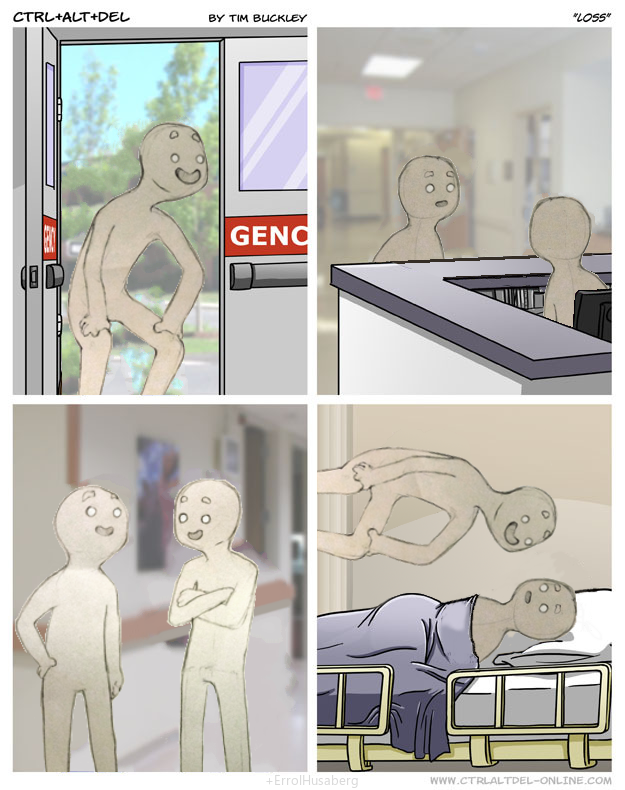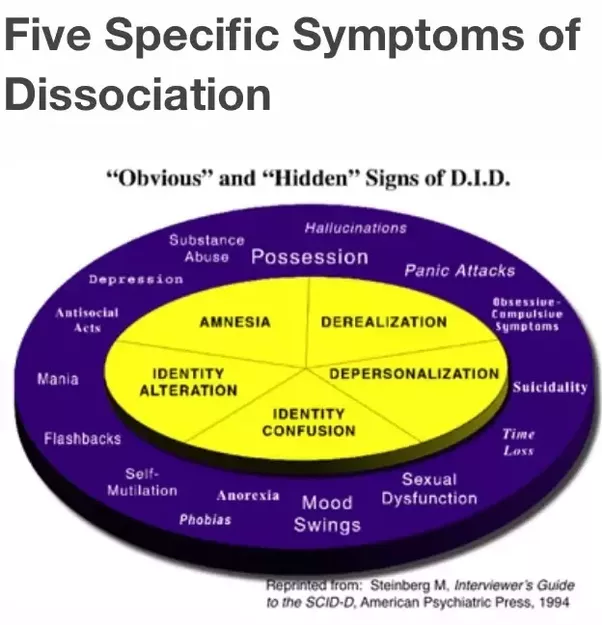Life after ocd
Life After, Life After OCD
« BlogPosted
By Ethan S. Smith, IOCDF National Ambassador
What happens when OCD is no longer the biggest challenge you face in your day to day life? After successful treatment, does life become easy, with OCD mere background noise rather than the seemingly immovable barrier that it once was? IOCDF National Ambassador, Ethan S. Smith describes the surprising insights and lessons that came in the wake of his successful OCD treatment.
I remember a conversation I had with my girlfriend at the time, shortly before moving from Boston to LA to “start my life.” I told her “Let me move out and get settled first. I should be able to make a half million or so in six months as an actor. Then you move out and we’ll get a place together.” I was one hundred percent sincere making that claim. Made complete sense. Even with OCD tying both hands behind my back, I had been able to eke out a relatively successful acting career, appearing in commercials, television, and movies.
And from Florida no less! Where I was afraid to leave my parents house because of my OCD and anxiety. Now with the cage door open and the wind at my back, I was set to fly off to Los Angeles and make life my bitch.
For those of you familiar with my story, it’s a cautionary tale of how malignant and terrible OCD can get. How physically ill a mental disorder can make you. How after 31 years of tortuous thoughts, compulsions, missed experiences, milestones, ill-equipped treatment providers, and living life on the sidelines, I finally got better through insane amounts of tough love, support, and that elusive effective treatment.
I’ve been living close to 8 years now in a state of successfully managing OCD. I simply define that as living my life as close to my values as possible without OCD interfering in decision making or functioning. This doesn’t mean I don’t have obsessive thoughts. It definitely doesn’t mean I don’t ritualize at times (I just finished googling “How many times can you re-heat Chinese food?”). It just means that OCD doesn’t play a primary role in my life. I am grateful. I am blessed.
It just means that OCD doesn’t play a primary role in my life. I am grateful. I am blessed.
And then… I’ve begun to learn a very valuable (and painful) lesson in the past few years: Achieving freedom from OCD’s grasp doesn’t guarantee all my dreams will come true.
I spent thirty-one year’s imagining what my life would be like if pesky OCD wasn’t a factor. All the things I’d be capable of achieving. How much easier life would be. All my dreams and goals a reality for me to bask in the glow of. And… it was a logical leap. For all intents and purposes, I was a successful actor unable to take the next steps because of my OCD. I had successful relationships torn apart by OCD. Every problem and failure in my life I could point the finger at OCD and blame it. So, if OCD goes away, life becomes clear sailing with the wind at my back and my dreams ahead. But my OCD is in check. And so why am I still trying to afford a boat that stays afloat, let alone sail the waters of life towards the sunset?
No longer having OCD to blame for failures and missteps is a staggering revelation.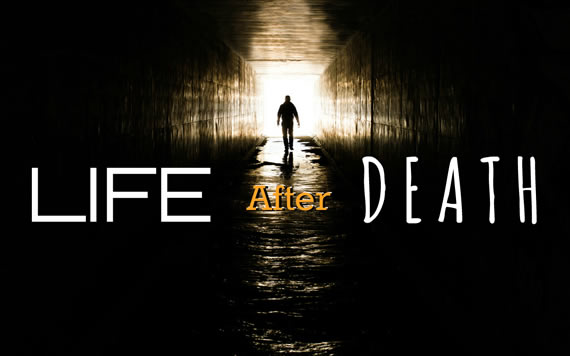 Granted, I’m in an industry with a soul-crushing amount of judgement and rejection. That aside, I had an expectation that life, free from OCD, would be easy. After all the suffering I had experienced, I deserved and should experience an obstacle free life.
Granted, I’m in an industry with a soul-crushing amount of judgement and rejection. That aside, I had an expectation that life, free from OCD, would be easy. After all the suffering I had experienced, I deserved and should experience an obstacle free life.
At first, I shrugged off life’s hardships pretty well. Overtime, however, the day-to-day struggle started creating immense doubt and insecurity in my mind. With OCD mostly out of the picture, if things didn’t go my way, the only thing to blame… was me. Every project gone wrong, failed relationship, inability to succeed, perform, pay a bill? MY FAULT. The truth had been unraveled. Ethan the individual finally exposed as less than, not good enough, a fraud, a let-down, loathsome, an embarrassment to everyone who ever believed in me. Life proved me wrong, and that absolutely crushed me. I understand that this is a pretty harsh judgement (see below for my New Year’s resolution to treat myself better!), but this is how it felt at the time. There are times where it still feels that way.
There are times where it still feels that way.
The last two years have been fraught with life’s ups and downs. Life is really hard, and it’s harder for those of us that struggle with mental illness. I can only speak from my own experience, but that wasn’t obvious to me at first. I wasn’t prepared for it. When I got better, I was new skin exposed to a bright sun with no sun screen. I got burned!
So what now? This morning I wrote in my self-compassion journal. Turns out self-compassion is where it’s at – my aforementioned New Year’s Resolution. I have realized that I currently have very little of it. I took a test. On a scale from 1-5 (with 5 loving yourself a little too much), I scored 1.43. At least I’m fantastic at not being self-compassionate. But I’m working hard to change that. I’ve started seeing my therapist twice a week for a while. I’m working on my self-compassion workbook. I’m reading two other books on self-compassion. I’m meditating more. Thanking myself more. Trying to love myself again. It’s going to take time. I’m on my way.
It’s going to take time. I’m on my way.
When it comes to advocacy, I’ve always taken a transparent approach. This is me. This is where I am right now, as you’re reading this. The journey doesn’t end because the OCD chapter closes. It actually gets harder because life is not a straight line (we’ve all seen that meme). But I don’t tell you any of this to discourage you. In fact, quite the opposite. I tell you this in case you are feeling alone with similar feelings. So, you know I’m with you in this process.
Keep getting up when you’re knocked down. Keep fighting for you. Keep being proactive and continue to work the process. Don’t be fooled by self-stigma, lean on your friends and family. There’s no shame in struggling just because you’ve struggled in the past. I’m just learning that. Life is tough, but you’re tougher. Discover your silver linings. I think they’re the most beautiful parts of life, and they only come, after the storm.
Also, you should only re-heat Chinese food once.
Ethan S. Smith presenting at the 25th Annual OCD Conference during the Saturday Night Social.
You've Beaten OCD – Now What?
For many people, the journey through obsessive-compulsive disorder and back to good health is a long one. Getting the correct diagnosis, or even just recognizing you have OCD, often takes years. Then comes the search for appropriate treatment, followed by a long-term commitment to therapy and hard work. We know recovery is possible, but it is rarely a “quick fix.”
I try to imagine what it must feel like, after being controlled by OCD for so long, to finally have your life back? Relief. Gratitude. Excitement!
Yes, but for many, also add trepidation and confusion, with a helping of uncertainty.
What do I do NOW?
For many people, living with a good-sized case of obsessive-compulsive disorder is a full-time job. Obsessions, compulsions, more compulsions, getting stuck, avoidance, more compulsions, planning your next move, more compulsions — it can literally take up all your time. When my son Dan’s OCD was severe, OCD was all he “did” day in and day out. It truly stole his life.
When my son Dan’s OCD was severe, OCD was all he “did” day in and day out. It truly stole his life.
And yet, it’s not hard to understand that when you’ve performed compulsions for such a long time, they can become comfortable and familiar — not unlike a security blanket.
So when you finally get your life back, it can be disorienting and scary. You might even feel anxious about feeling well because you’re not used to feeling that way and don’t know how to handle not being a slave to OCD. What do you do with all this free time? How can you be sure to live that happy, productive life you’ve worked so hard to reclaim?
I have heard from quite a few people who have faced this issue, and it’s not unusual for OCD to try to worm its way back into their lives. All the uncertainty about what’s to come can be a ripe breeding ground for OCD. In addition, those with the disorder might start to obsess about how they think they are supposed to feel, or maybe even wonder if they ever really had OCD in the first place?
Hopefully, those who have made it this far in their battle will recognize OCD if it rears its ugly head and see it for what it is – a big bully trying to regain control. They will respond appropriately by just acknowledging the anxiety, not giving it any additional attention, and then continuing on with their lives. Of course, one of the best ways to keep OCD at bay is by continuing to use exposure and response prevention (ERP) therapy.
They will respond appropriately by just acknowledging the anxiety, not giving it any additional attention, and then continuing on with their lives. Of course, one of the best ways to keep OCD at bay is by continuing to use exposure and response prevention (ERP) therapy.
Back to the question of “What do I do NOW?” the answer is clear. You live your life the way YOU want to, not the way OCD wants you to. You identify your goals and work toward them within the framework of your values. What do you want out of life? While to some people the answers are obvious, others might need guidance to help figure out their fresh path. A good therapist can be invaluable.
Let’s get back to those feelings of Relief. Gratitude. Excitement! Because for all those whose lives are now unencumbered by OCD, anything is possible. Your hopes and dreams really can come true!
Is there a way out of the inner prison? — Monoclair
Headings : Latest articles, Psychology
Did you find something useful here? Help us stay free, independent and free with any donation:
Donate
Magical thinking as an attempt to control reality arose in primitive times.
 Then, not knowing the laws of the objective world, people tried to protect themselves from the blows of fate with specific rituals. Surprisingly, today, in the 21st century, during the heyday of science and free access to knowledge, many still obsess over "magic rituals" in an attempt to influence the ever-changing world. What is magical thinking, why is it dangerous and what is obsessive-compulsive disorder, we understand together with practicing psychologists and leading researchers.
Then, not knowing the laws of the objective world, people tried to protect themselves from the blows of fate with specific rituals. Surprisingly, today, in the 21st century, during the heyday of science and free access to knowledge, many still obsess over "magic rituals" in an attempt to influence the ever-changing world. What is magical thinking, why is it dangerous and what is obsessive-compulsive disorder, we understand together with practicing psychologists and leading researchers. Each new century sets conditions for humanity that it was not ready for: the First and Second World Wars struck the world with their unprecedented cruelty and broke the psyche of entire generations, and the relatively stable XXI fell upon us with the daily variability of reality. Being in the so-called information society, we daily receive information flows of very different, sometimes polar content, we are forced to master new programs and techniques, regularly improve our skills in order to maintain a source of income, rethink social processes and, most importantly, come to terms with the absolute instability of everyday life.
The demands that modernity imposes on us affect a huge amount of mental resources. Meanwhile, the need for stability is still one of the basic ones for us. Reality is accelerating, and in these difficult conditions, more and more people resort to the so-called "magical thinking". Its essence lies in the fact that a person begins to think that his thoughts, actions or words have a certain impact on the reality around him.
It is worth noting that Ivan Petrovich Pavlov, who studied the human tendency to try to program the surrounding reality, was also engaged in the study of this phenomenon.
As modern experts note, such a habit can develop into addiction, and in this case, the person will explain all his victories and defeats by the fact that he “was rude to someone in public transport”, “didn’t borrow money for a friend”, “didn’t listen to the annoying him a comrade”, etc. Variants of "magical actions" are deeply individual and diverse.
In addition, according to Doctor of Sociology V. S. Svechnikov and the competitor of the Department of Cultural Studies of the SSTU L.N. Chevtaeva, myths about magic are firmly rooted in the collective unconscious. They note:
S. Svechnikov and the competitor of the Department of Cultural Studies of the SSTU L.N. Chevtaeva, myths about magic are firmly rooted in the collective unconscious. They note:
Sane citizens of Russia, businessmen, politicians, doctors, scientists understand that any mysterious phenomena are always of interest to the masses and are the basis for various kinds of speculation.
This was especially noticeable in the 90s. In a period of absolute instability, people with particular zeal turned to all kinds of magicians, fortune-tellers and psychics. During this time, and later in the 2000s. television, radio and other media supported the interest of the masses in everything “mysterious”: A. Kashpirovsky’s programs, shows with psychics, calls to the studio to “magicians” who “resolved” any problems at a distance were especially popular - from husband’s alcoholism to serious diseases.
In this regard, the Russian Academy of Sciences even created a special Commission to combat pseudoscience and falsification of scientific research.
At the same time, it is interesting that many understand the illogicality of "magical thinking" and speak out against such a method of controlling reality. However, a study conducted in the UK by psychologist E. Subbotsky showed the opposite. One of the experiments is described as follows:
Adult subjects were asked to imagine their future life. After that, they were told that a) a magic spell cast on their future life would change this life for better or worse (mythical suggestion), and b) changing the numbers on the computer screen would change their future life for better or worse (ordinary suggestion). All subjects denied that changing the numbers on the computer screen could affect their future lives, but in their actions they demonstrated their belief in this possibility.
Thus, it can be said that mentally healthy people are aware of the absurdity of "magic spells", however, an irrational grain deeply embedded in the unconscious, in some cases associated with childhood trauma, as well as with culture (tales, myths, tales, sayings and local superstitions) prevents them from thinking rationally and greatly increases anxiety levels.
This is precisely what "magical thinking" is dangerous for. Getting the illusion of control over the world, a person begins to strive for "absolute omnipotence" and tries to program the uncontrollable. In cases where his actions coincide with obtaining the expected result, he increasingly believes that he has found a "magic way" to control the environment. Otherwise, he blames himself for supposedly “wrong” thoughts or actions.
The habit of thinking "magically" is fraught with the fact that seemingly harmless actions quickly progress into a real mental illness - obsessive-compulsive disorder (hereinafter - OCD), bringing severe, sometimes unbearable suffering to a person.
OCD is an obsessive condition characterized by obsessions and compulsions, where an obsession is a persistent, highly frightening or unpleasant thought that comes into the mind of the patient against his will, and a compulsion is a special, deeply individual ritual that helps to temporarily get rid of obsessive thoughts.
Thus, the consciousness of a person with varying degrees of frequency is visited by phobic, sometimes disgusting, thoughts unusual for the individual. Among the most common are the fear of contracting a dangerous, incurable disease, catching a virus, failing at work or school, losing a loved one, etc. Sometimes the patient is faced with nasty and unusual images of violence, cruelty, sexual perversion, intentions to cause someone moral or physical harm.
Thoughts that have nothing to do with the patient's personality drive him crazy, drive him into a panic. To get rid of them, he tries to perform absurd rituals invented by him. The most frequent ones are constant washing of hands, avoiding stepping on certain steps of stairs, arranging books and other objects in the “right” order, etc. Rituals can be very different. For example, some people are afraid to repost or like on social media simply because they think “something bad” might happen.
Psychologist-consultant A.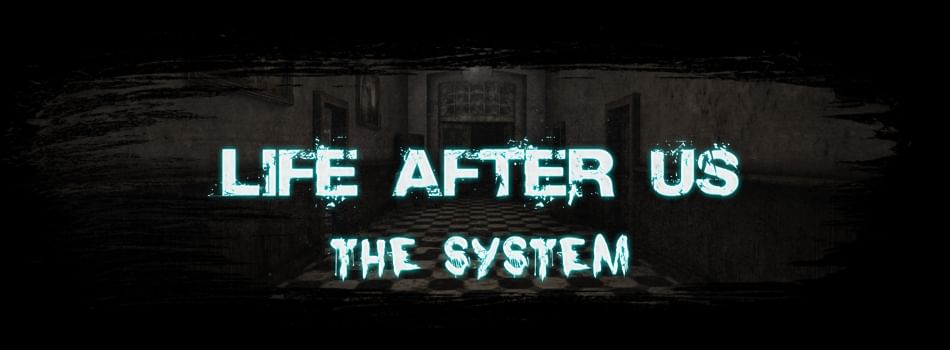 V. Duhareva notices:
V. Duhareva notices:
A person believes that the repetition of certain actions can protect him from the vicissitudes of fate. Often from such clients you can hear phrases like: “if I do everything right, then nothing will happen”, “the main thing is to turn off the light with the right / good thought”, “if I made a mistake in the sequence of actions, then it is important to start all over again”, etc. P.
OCD usually occurs for a variety of reasons. This can be both a consequence of a passion for magical thinking, and childhood trauma, stress, moral and physical exhaustion, heavy workload at work, instability in professional activities.
The danger lies in the fact that in reality there are no "magic" rituals. But sincerely believing in their power, the patient can spend hours just washing their hands, turning door handles a certain number of times, rewriting social media messages, choosing the “correct word order”, etc. The fear behind each ritual varies significantly each individual person. For example, people with anorexia may forbid themselves from saying certain words or letters for fear of gaining weight. At the same time, rituals bring only temporary relief, forcing a person to independently immerse himself in an inner prison full of unbearable suffering.
For example, people with anorexia may forbid themselves from saying certain words or letters for fear of gaining weight. At the same time, rituals bring only temporary relief, forcing a person to independently immerse himself in an inner prison full of unbearable suffering.
Interestingly, most OCD sufferers really understand the absurdity of the situation, but can't fix anything. As a rule, they hide their illness, fearing condemnation and ridicule. According to WHO, in 2013, 1 to 3% of the population suffered from OCD. However, according to experts, this figure is greatly underestimated.
It is also important that, in addition to most people who are aware of the illogicality of their actions, patients with a "psychopathic level of organization will believe that rituals really save them from fatal consequences."
The good news is that this disease is curable. The advice of psychiatrists is universal. A person should carefully monitor his condition and effort of will, try to break the chain of his own “cause and effect relationship”, trying to identify in the cause of success or failure not a sign of “correct performance of magical actions”, but a real act, to realize the level of anxiety that interferes with a full life, for example, in the form of relationship problems, an eating disorder, a stressful job, an unstable business. Psychotherapists also offer to bring rituals to the point of absurdity, that is, for example, to close and open doors until the moment when a person simply gets tired and realizes the meaninglessness of this action. Moreover, doctors recommend visualizing my fears, imagining what would happen if I “lost my job”, “gained weight”, “broke up with a toxic partner”, etc. In this case, the patient, albeit with more discomfort and high anxiety, works out alternative options that help him remove fatal scenarios from his life.
Psychotherapists also offer to bring rituals to the point of absurdity, that is, for example, to close and open doors until the moment when a person simply gets tired and realizes the meaninglessness of this action. Moreover, doctors recommend visualizing my fears, imagining what would happen if I “lost my job”, “gained weight”, “broke up with a toxic partner”, etc. In this case, the patient, albeit with more discomfort and high anxiety, works out alternative options that help him remove fatal scenarios from his life.
As a rule, patients diagnosed with obsessive-compulsive disorder undergo both drug therapy (usually with the help of antidepressants and tranquilizers) and visit a psychotherapist who not only helps to get rid of obsessive thoughts, but also tries to help the client find and neutralize reason for his anxiety. After all, everything that happens to us, be it OCD or a panic attack, is, in fact, a signal that something is going wrong in our lives. And our psyche begins to rebel, demanding a more careful attitude towards ourselves and our lives. Reviewing the life script, realizing that the patient may not be going his own way or taking on too much, helps him return to a healthy life.
Reviewing the life script, realizing that the patient may not be going his own way or taking on too much, helps him return to a healthy life.
In addition, it is important to remember that life has always been, is and will be a changeable substance. This is its value and beauty. We do not have the right to "concrete" the present, but we have a unique opportunity to live without fear, enjoying every day, with all its amazing surprises or troubles, which, in the end, save us from infantilism and make us stronger.
Related selection
- "Primitive Thinking": Lucien Levy-Bruhl on the prelogical ideas of the ancients
- Diogenes Syndrome: why do we collect junk
- Political Myth: How Basic Archetypes Became Manipulation Weapons
Cover: René Magritte, detail from The Heart of the Matter (1937)
If you want to help Monocler, make a monthly payment on Patreon or support us with a one-time donation:
Patreon
YuMoney
If you find an error, please highlight the text and press Ctrl+Enter
From that moment on, the frightening thoughts were different. I could suddenly change the route, because the thought came to my mind: “It is not safe to go further. Get around." There were thoughts to harm loved ones: push, hit, pour over. At such moments, I thought that an evil force had entered into me, and I began to count to myself, imagined how the numbers increased in order in size and knocked bad thoughts out of my head.
I could suddenly change the route, because the thought came to my mind: “It is not safe to go further. Get around." There were thoughts to harm loved ones: push, hit, pour over. At such moments, I thought that an evil force had entered into me, and I began to count to myself, imagined how the numbers increased in order in size and knocked bad thoughts out of my head.
By the time I was twelve, everything had come to naught, and in my teens I decided that these were just childish oddities. But seven years later, the obsessive thoughts returned, and the doctor at the neuropsychiatric dispensary diagnosed me with Obsessive-Compulsive Disorder. I'll tell you how I was treated and how I live now.
See a doctor
Our articles are written with love for evidence-based medicine. We refer to authoritative sources and go to doctors with a good reputation for comments. But remember: the responsibility for your health lies with you and your doctor. We don't write prescriptions, we make recommendations. Relying on our point of view or not is up to you.
Relying on our point of view or not is up to you.
What is obsessive-compulsive disorder
Obsessive-compulsive disorder is a mental illness in which a person has obsessive thoughts and compulsive actions.
What is obsessive-compulsive disorder - Mayo Clinic
Intrusive thoughts - obsessions - usually revolve around certain topics: fear of harming yourself and others, fear of germs and toxic substances, the need to organize everything. They appear suddenly or are provoked by external circumstances, such as a sharp object or the word "last".
Intrusive thoughts cannot be ignored, they cause anxiety or disgust. In response to them, a person has compulsions - a strong desire to perform certain actions that, according to his feelings, will get rid of such thoughts. Compulsions are difficult to resist: the anxiety will grow until the person gives up.
For example, the obsessive thought that a person will become infected after touching a doorknob will provoke compulsive actions - repeated washing of hands, sometimes for several hours in a row.
/shizofreniya/
How much does it cost to support a relative with a mental disorder
I try not to touch doorknobs in public places and always make sure the door is closed. Do I have OCD?
Sergey Divisenko
psychotherapist
If a person’s condition does not interfere with himself or others, then everything is in order; if it interferes, a disorder can be suspected. In the case of checking the door, one can say that checking if the door is closed once is not a problem, rechecking the door several times in a row and doing it systematically is already a problem.
To understand whether or not there is OCD, the doctor pays attention to how often the patient has obsessive thoughts and compulsive actions and how they affect his life. If symptoms occur more frequently in two weeks than in seven days and interfere with daily activities, it is probably OCD.
In this case, the symptoms should have the following characteristics:
- The person should evaluate them as their own thoughts and desires.

- There must be at least one thought or action that the person unsuccessfully resists.
- The thought of a person performing a compulsive action should not in itself be pleasant. The fact that an action will help reduce anxiety is not considered pleasant in this sense.
- Thoughts or actions must be repeated.
How obsessive-compulsive disorder is treated
OCD is considered a lifelong disorder, but with treatment, remission can be achieved: for a long time, get rid of obsessive thoughts and compulsive actions or reduce their number.
Medical treatment. The main drugs for the treatment of OCD are antidepressants of the SSRI group. They increase serotonin levels in the brain, making OCD symptoms less likely to occur.
Treatment options for OCD - NHS
Depending on the course of the disease and symptoms, along with antidepressants, the doctor may prescribe other medications: tranquilizers, antipsychotics, or mood stabilizers.
Cognitive behavioral therapy. This is a type of psychotherapy during which a person learns to control his emotional response to intrusive thoughts. As a result of therapy, obsessive thoughts cease to cause anxiety and compulsive actions.
Cognitive Behavioral Therapy - NHS
Order of the Ministry of Health of the Russian Federation of September 16.2003 No. 438 "On Psychotherapeutic Care"
OCD in Russia is treated by psychiatrists, psychotherapists and psychologists. Psychiatrists prescribe prescription drugs. Psychotherapists and psychologists conduct psychotherapy sessions.
How I was diagnosed
At the age of 19, the development of the disease took a new turn. I was washing the kitchen knife and I had an obsessive thought that I was losing control and could cut myself and the guy who was nearby at that moment. So I began to avoid sharp objects, there was an irresistible desire to hide or throw them away.
Obsessive thoughts revolved around the topic of death: drinking nail polish remover, bleach, vinegar, throwing yourself under a vehicle or jumping out of a window. Because of this, I removed all dangerous liquids from the house and stayed away from open windows, highways and train station platforms. I didn’t sleep well at night, suffered from anxiety, considered myself crazy and dangerous, and began to move away from everyone.
Because of this, I removed all dangerous liquids from the house and stayed away from open windows, highways and train station platforms. I didn’t sleep well at night, suffered from anxiety, considered myself crazy and dangerous, and began to move away from everyone.
I also doubted everything. Even if I just performed an action, it seemed to me that it was not completed. I opened the door to make sure that it had been closed before, closed it again, pulled the handle, asked those around me if the door was exactly closed. I could wake up at night and see if the stove was turned on, although before going to bed I went up to it and stared without blinking - so that it would crash into my memory that it was definitely turned off. My young man, seeing all this, insisted that we try to see a psychologist.
In Irkutsk, where I live, psychiatric care can be obtained free of charge at the regional psycho-neurological dispensary. I turned to the psychotherapeutic department of the dispensary for a consultation with a psychologist. At the reception, they brought me a card and said that there was no appointment with a psychologist for the next few days, but I could get to a psychiatrist: there are fewer people who want to see him.
At the reception, they brought me a card and said that there was no appointment with a psychologist for the next few days, but I could get to a psychiatrist: there are fewer people who want to see him.
/spravka/
How to get a certificate from PND
At the appointment with the psychiatrist, I told about what was happening to me. The doctor was not surprised and said that it was an obsessive-compulsive disorder. It was the first time I heard my diagnosis, but I didn't believe it. On the Internet, I came across information that OCD is only pedantry, handwashing, fear of germs and perfectionism, and not the creepy things that come to my mind. The psychiatrist said that OCD was treated with antidepressants and offered to write a prescription, but I refused treatment because I thought they were serious drugs that would do more harm than help.
How a visit to a psycho-neurological dispensary with OCD will affect later life
Sergey Divisenko
psychotherapist
The patient could move freely, drive a car, use weapons and work.
With an OCD diagnosis, you can still work in any job, there are no legal barriers to this. With regard to cars and weapons, the situation has changed. In 2014 and 2015, government decrees appeared, according to which OCD became a contraindication for driving and owning weapons.
However, from a psychiatrist's point of view, a person diagnosed with OCD can drive a car and use a weapon. Doctors of the psycho-neurological dispensary still give a certificate about this, but they do it through a medical commission.
Treatment
First hospitalizationMy condition worsened, I tried to ignore obsessive thoughts. But the more I resisted them, the stronger they became. In addition, anger, irritability and constant fatigue appeared.
With new symptoms, I decided to see an endocrinologist, because I heard that this happens with problems with the thyroid gland. According to the results of ultrasound and hormone tests, the thyroid gland was in order.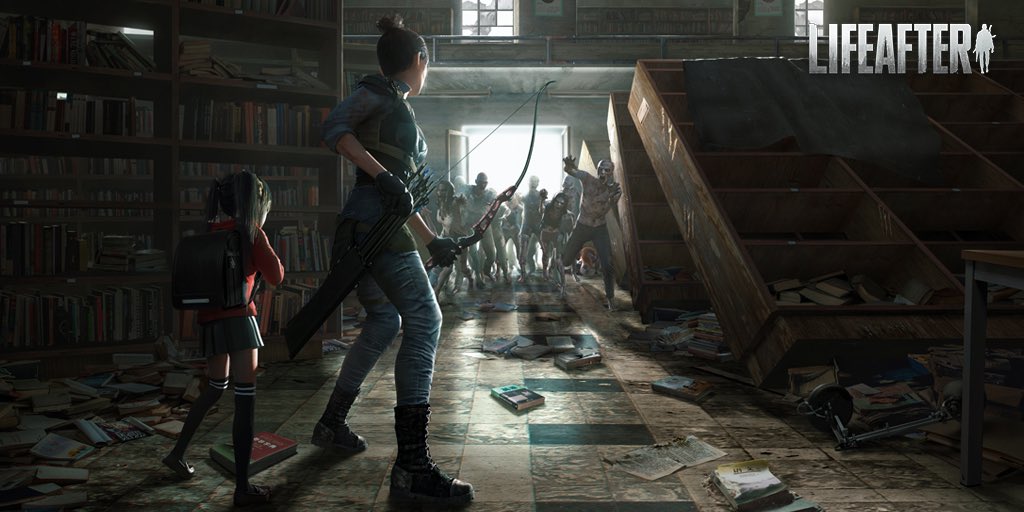 Then I made an appointment with a neurologist, but he also said that this was not his profile. Both doctors suggested that my constant fatigue, anger and irritability were symptoms of depression and advised me to seek psychiatric help.
Then I made an appointment with a neurologist, but he also said that this was not his profile. Both doctors suggested that my constant fatigue, anger and irritability were symptoms of depression and advised me to seek psychiatric help.
Symptoms of clinical depression - NHS
I researched information about depression and realized that antidepressants could help, all I had to do was get a prescription. I came to the psychotherapeutic department again, but there was already another psychiatrist there. Since my condition worsened, instead of a prescription, he wrote out a referral for hospitalization in a day hospital. I had prejudices about a psychiatric hospital, so I did not want to visit the hospital. But there was no strength to argue with the psychiatrist.
This is how a referral for hospitalization to a day hospital looks like The next day I was already in the hospital. During the registration, the psychiatrist on duty asked what I was complaining about, measured the pressure and examined whether there were injuries on the body. It turned out to be difficult for me to talk about the symptoms: there was a feeling that they would not believe me, or vice versa, they would believe me so much that they would put me in a round-the-clock hospital. But everything was fine, the psychiatrist wrote down the data on the card, gave it to the orderly, and together with him sent me to the head.
It turned out to be difficult for me to talk about the symptoms: there was a feeling that they would not believe me, or vice versa, they would believe me so much that they would put me in a round-the-clock hospital. But everything was fine, the psychiatrist wrote down the data on the card, gave it to the orderly, and together with him sent me to the head.
The manager looked at the card, confirmed the diagnosis of OCD and depression, and prescribed treatment: an antidepressant, an antipsychotic, a mood stabilizer, tranquilizer tablets, and injections of B vitamins.
/guide/vitamins/
Vitamins: what foods contain and how to take supplements
The routine in the hospital was as follows: I arrived at eight in the morning, had breakfast and took the prescribed pills, took injections, dined and went home. Tablets were issued immediately for one day, but they could also be issued for two days, for example, before the weekend. Once after the injection, I went to an appointment with a clinical psychologist, he gave various tests and questionnaires that tested logic and intelligence.
About three times a week I went to see a psychiatrist in the same hospital. I told her about my condition and asked questions. I thought that as soon as I start taking medication, my mood will rise and my anxiety will go away. But this did not happen, so it seemed that everything was in vain and the treatment had to be abandoned. The psychiatrist explained to me that not all drugs begin to act instantly, she assured me that we were on the right track and we had to wait. These conversations made it easier. In my case, antidepressants began to work only on the third month of admission, when I no longer visited the day hospital.
Treatment at the day hospital lasted a month. All medications, medical consultations and meals were free. I spent money only on the road to the hospital and back - 600 R by public transport for the whole time.
/bye-depression/
“It reminded me of a strict regime sanatorium”: how much I spent on treating depression
After treatment, the symptoms of depression remained, but obsessive thoughts began to bother me less often: I stopped being afraid of open windows and was able to ride the escalator. Treatment had to be continued on an outpatient basis. Before I was discharged, the psychiatrist said that she would transfer my data to the psychiatric department. Now I will need to come to the local psychiatrist for prescriptions for medicines, and turn to him if the condition worsens or questions arise.
During the treatment in the hospital, I doubted everything. Even in being sick. Not only the psychiatrist, but also relatives helped to cope. They noticed the changes, but my young man didn't let me stop the treatment
They noticed the changes, but my young man didn't let me stop the treatment Treatment
Visiting a local psychiatristAfter I was discharged from the hospital, I came to the registration office of the psychiatric department with a passport and I was immediately sent to the district police officer. The doctor did not change the treatment and wrote out a prescription for the same medicines that were given in the day hospital. In the future, a referral to the district police officer was also not required. I just came to the appointment when I needed to update the prescription.
Government Decree of July 30, 1994 No. 890 with a list of categories of beneficiaries who are entitled to free medicines
District psychiatrists were different: some were polite, some were rude and rude. Using the brute force method, I found two normal specialists - when I made an appointment at the reception, I began to ask to be directed to them. Usually the registrar complied with my request.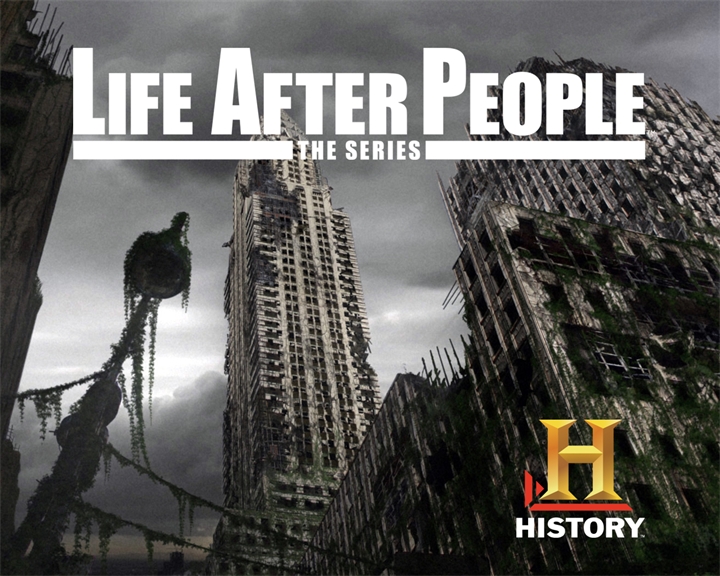
Spent in six months of outpatient treatment — 8895 Р
| Preparation | Spending |
|---|---|
| Antidepressants | 5988 R |
| Normotimics | 2384 R |
| Antipsychotics | 419 P |
| Tranquilizers | 104 P |
Antidepressants
5988 R
Normotimics
2384 R
neuroleptics
419 R
Transquilizers
104 R
Free medicines for the treatment of OCD are provided to certain privileged categories of people. I’m not a beneficiary, so I bought everything with my own money. Pharmacies don’t require a passport, but they put the date of issue of the medicine on the back and don’t sell more than prescribed by prescription. For example, according to a prescription for three months, I was given only three packs of an antidepressant. When I wanted to buy one more to have a supply, the pharmacist refusedTreatment
Second hospitalization and psychotherapy After six months of outpatient treatment, the local psychiatrist recommended to be treated again in the hospital.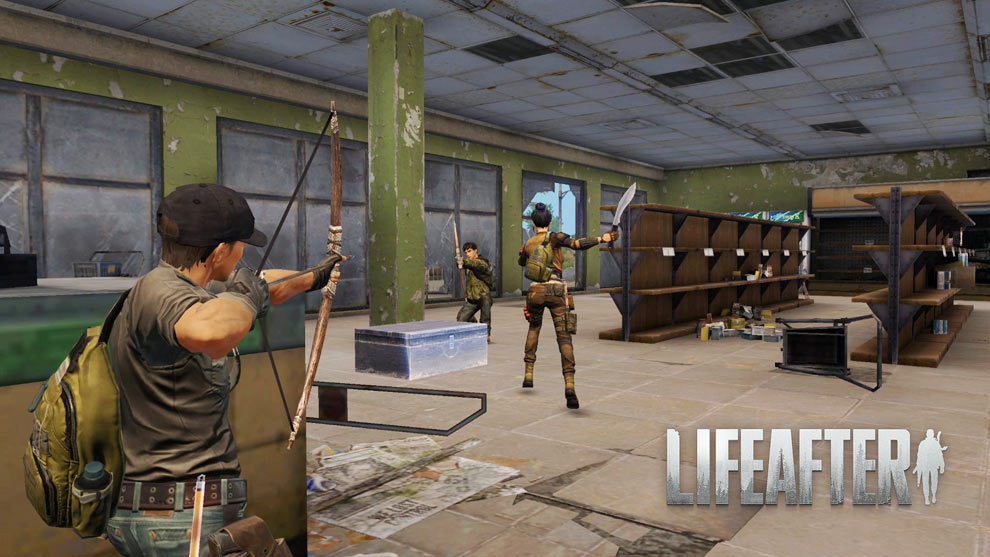 Antidepressants helped: my mood improved, I got energy and I wanted to live, but I felt a side effect from antipsychotics. I was terribly sleepy, my handwriting changed, it was difficult to write in class and generally follow the train of thought of the teacher. In addition, there were more intrusive thoughts.
Antidepressants helped: my mood improved, I got energy and I wanted to live, but I felt a side effect from antipsychotics. I was terribly sleepy, my handwriting changed, it was difficult to write in class and generally follow the train of thought of the teacher. In addition, there were more intrusive thoughts.
In the day hospital, I was treated by the same psychiatrist as the first time. She adjusted the drug treatment so that I was not bothered by intrusive thoughts. She also said that a psychotherapist had appeared in the hospital and referred me to her for a consultation.
Unlike the psychiatrist's consultations during the first hospitalization, we did not discuss drugs and their effects with the psychotherapist. We talked about what is happening to me and what other methods can be used to combat this, in addition to drugs. At the first appointment, I briefly talked about my lifestyle, obsessive thoughts, compulsive actions, and how I tried to resist them even before the treatment. Then the doctor explained to me what obsessive-compulsive disorder is and how it manifests itself, why my struggle only worsened the condition and led to depression.
Then the doctor explained to me what obsessive-compulsive disorder is and how it manifests itself, why my struggle only worsened the condition and led to depression.
/psychotherapy-search/
How to choose a psychotherapist
We agreed that I would try to keep the number of compulsive acts to a minimum, and I would deal with anxiety from intrusive thoughts with the help of techniques.
Speak key phrases. Thoughts in themselves mean nothing, they can come to mind automatically. We agreed that when I had an obsessive thought, I would simply tell myself that it was a manifestation of OCD. Here are the two phrases that I used: “This is just my thought that…”, “I know that this thought is a manifestation of OCD…” So gradually I stopped identifying myself with my thoughts and realized that thinking about the bad is does not mean to be a bad person.
Separately, we discussed the issue of the materialization of thoughts.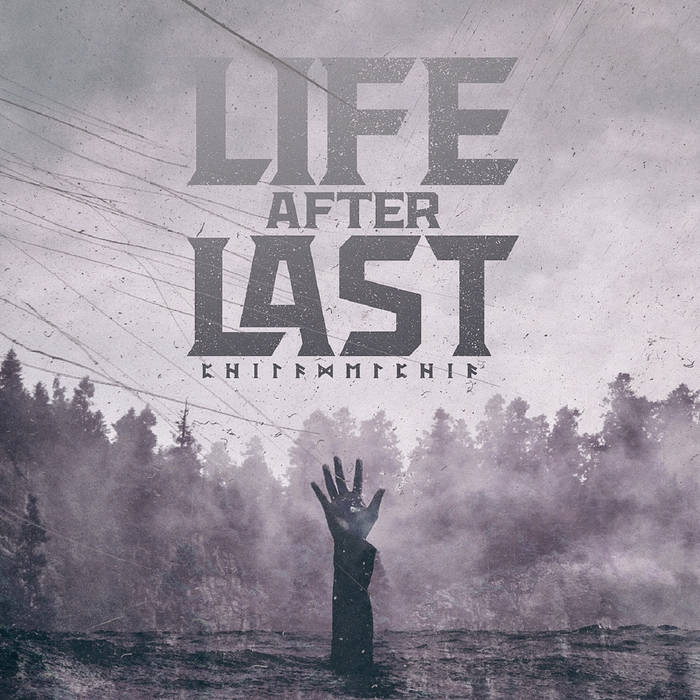 When terrible things are spinning in your head, and you hear from everywhere that thoughts are material, you get very worried. We discussed the fact that thoughts are intangible and you can’t invite trouble with them. This made it easier and the degree of emotions decreased.
When terrible things are spinning in your head, and you hear from everywhere that thoughts are material, you get very worried. We discussed the fact that thoughts are intangible and you can’t invite trouble with them. This made it easier and the degree of emotions decreased.
Observe how the body reacts to anxiety. Every time I had anxiety from obsessive thoughts, I did not run away from it, but watched my body. I was shaking, my heartbeat increased, my breathing quickened, but I continued to live it. The psychotherapist said that I would not die from this. Yes, it is unpleasant and scary, but when you live emotions, you gradually learn to cope with them.
Keep a diary. In the course of the sessions, I became convinced that I cannot control the thoughts themselves - it is impossible, but I can control the reaction to them. So I started keeping a diary.
/psychotherapy/
How psychotherapy works
It was necessary to take notes according to the formula: A - situation, B - my thoughts, C - my emotions. Using such records, it is easier to track the thoughts that cause negative emotions and work them out. For example, when I could not fall asleep for a long time, I began to think that something was going wrong, and this caused anxiety. Then I wrote down the whole situation in a diary and instead of negative thoughts I formulated new ones: "My sleep does not depend on my will, and this is normal." It helped to get rid of anxiety, stop trying to sleep and go about your business. About half an hour later I went to bed and fell asleep peacefully.
Using such records, it is easier to track the thoughts that cause negative emotions and work them out. For example, when I could not fall asleep for a long time, I began to think that something was going wrong, and this caused anxiety. Then I wrote down the whole situation in a diary and instead of negative thoughts I formulated new ones: "My sleep does not depend on my will, and this is normal." It helped to get rid of anxiety, stop trying to sleep and go about your business. About half an hour later I went to bed and fell asleep peacefully.
| I also kept a mood diary. Before treatment, there was no point in monitoring the mood: it always turned out to be bad or indifferent | On antidepressants, I began to make entries in a diary every day and could track what affects my mood |
I also kept a mood diary. Before treatment, there was no point in monitoring the mood: it always turned out to be bad or indifferent. On antidepressants, I began to make entries in a diary every day and could track what affects my mood
Before treatment, there was no point in monitoring the mood: it always turned out to be bad or indifferent. On antidepressants, I began to make entries in a diary every day and could track what affects my mood
In the day hospital, I was treated for a month and a half, during which time I had only five sessions with a psychotherapist. All sessions, meals and drugs, as in the first hospitalization, were free. The only thing I had to spend money on was the road to the hospital and back, as well as the original antidepressant instead of the analogue provided in the dispensary. The doctor recommended the original, it suited me better.
3202 Р
spent on medicines and transport for a month and a half of treatment in the hospital
When I was discharged, the doctor told me that I was in a stable condition, the treatment helped me. I myself felt it: the mood was consistently good, and I quickly coped with obsessive thoughts. I was canceled all the drugs, except for antidepressants, then I had to continue taking them, be observed by the district psychiatrist and monitor my condition.
I was canceled all the drugs, except for antidepressants, then I had to continue taking them, be observed by the district psychiatrist and monitor my condition.
Spent one and a half months of treatment in a hospital — 3202 Р
| Expenditures | Spending |
|---|---|
| Antidepressants | 2422 R |
| Transport | 780 Р |
Antidepressants
2422 R
Transport
780 R
How do I feel after treatment
I stopped taking antidepressants a year and a month after discharge I spent another 14,640 R on them. Sometimes I have obsessive thoughts and compulsive actions, but I do not scold myself for this. I know that if I get upset, the symptoms will become more frequent. The psychiatrist warned me that OCD symptoms may appear periodically, but this is normal.
14,640 R
spent on antidepressants for a year and one month
Coronavirus last spring was a test of strength for me. The condition worsened, compulsive actions resumed, I stopped leaving the house, I began to choke on the street, obsessive thoughts about death appeared. But I managed it on my own with the help of techniques taught to me by the therapist. I kept in my head the idea that if it worked then, it will work now.
The condition worsened, compulsive actions resumed, I stopped leaving the house, I began to choke on the street, obsessive thoughts about death appeared. But I managed it on my own with the help of techniques taught to me by the therapist. I kept in my head the idea that if it worked then, it will work now.
Before treatment, it was difficult for me to talk about my disorder. And now I openly talk about it and I can even joke about random manifestations of OCD. Almost everyone in my circle knows that I was being treated for OCD and depression. They help me notice compulsive actions and stop in time, treat me with understanding when I ask obvious things just in case - for example, did I close the door.
How often do people with OCD need to take drugs for life
Sergey Divisenko
psychotherapist
With the help of treatment, you can achieve remission - for a long time to get rid of the symptoms of OCD or reduce their number. Remission can occur both against the background of taking medications, and without them, against the background of psychotherapy.
Approximately 80% of patients with OCD stop taking medication sooner or later.
How much does OCD treatment cost?
In total, I treated OCD for one year and nine months. Of these, she was treated in a day hospital for two and a half months, and for a year and seven months - on an outpatient basis.
In the hospital, I only spent money on transport to and from the dispensary. Even during the second hospitalization, on the recommendation of the doctor, she bought antidepressants at the pharmacy and took them instead of those given in the hospital. The rest of the drugs, consultations and meals were free.
6 useful services for finding a psychotherapist
Most of the expenses are medicines during outpatient treatment.
Spent on OCD treatment for 1 year and 9 months — 27,337 R
| Expenditures | Spending |
|---|---|
| Antidepressants | 23 050 Р |
| Normotimics | 2384 R |
| Antipsychotics | 419 P |
| Tranquilizers | 104 P |
| Transport during hospitalization | 1380 R |
Save
- Obsessive Compulsive Disorder or OCD is a mental illness in which a person experiences obsessive thoughts and compulsive actions.






